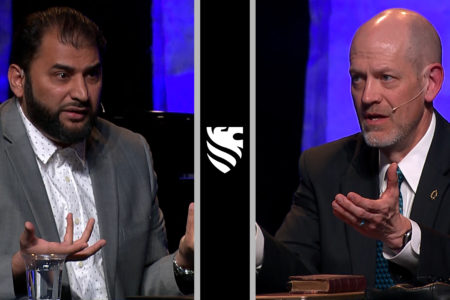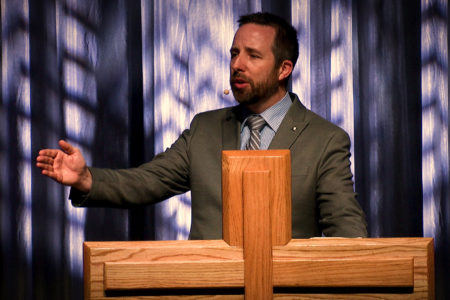Christian Nationalism is a movement that has split the evangelical world. To many individuals the notion of Christian Nationalism is appealing because they assume it is able to provide a stabilizing factor in an unstable society. To other individuals, Christian Nationalism is viewed as wrongly blurring the proper relationship between the Church and the State, so much so, that when it is explained by the main proponents of Christian Nationalism it bears striking similarities unto totalitarian regimes that Protestants once fled.
One of the major problems with Christian Nationalism is finding an agreed upon definition. Certain figures or subgroups will allow for an agreed upon definition, but these definitions seem to only carry local weight, and nothing more. Progressive movements are able to capitalize upon these varying definitions and use postmodern linguistic manipulations to control not only the movement, but the actions (or reactions) of the proponents.
Certain Reformed figures who embrace the label of Christian Nationalists, were right to critique the Woke movement for its embrace of epistemological subjectivity. However, their approach to worldview studies, namely an idealistic approach to worldview studies, has caused them to embrace another version of perspectival epistemology. Unfortunately, subjectivity, whether it be Woke subjectivity, or Reformed subjectivity, is just that—subjectivity. The only way to overcome epistemic subjectivity is not by baptizing it, rather it is by abandoning it in favor of epistemological objectivity.
Moreover, some of the most popular expressions of Christian Nationalism, while they claim to be the heirs of Scholastic Reformed Protestantism, seem to bear more of the marks of synthesizing Hegel’s views of society and government than pure Reformed orthodoxy. The movement has also garnered energy from theonomists, who for lack of better words, are more concerned with preserving the judicial laws of ancient Israel, rather than protecting the US Constitution. This has resulted in a call for new blasphemy laws for both moral and religious differences. These expressions, while governed by zeal, are both historically uninformed and Scripturally incorrect. Finally, they overlook the fact that America was built upon both religious freedom and the freedom of speech.
Segments of the Christian Nationalists movement, while signaling their allegiance to the Reformation, functionally undermine the Reformation by calling for a present-day version of Evangelicals and Catholics Together. It ought to be remembered that the Reformation was not grace, faith, Christ, Scripture, or the glory of God. Rather, the Reformation was about grace, faith, Christ, Scripture, and the glory of God, ALONE. Let us never undermine the purity of the Gospel for political expediency.
PDF versions of the PowerPoint slides from this presentation are available here.






Recent Comments